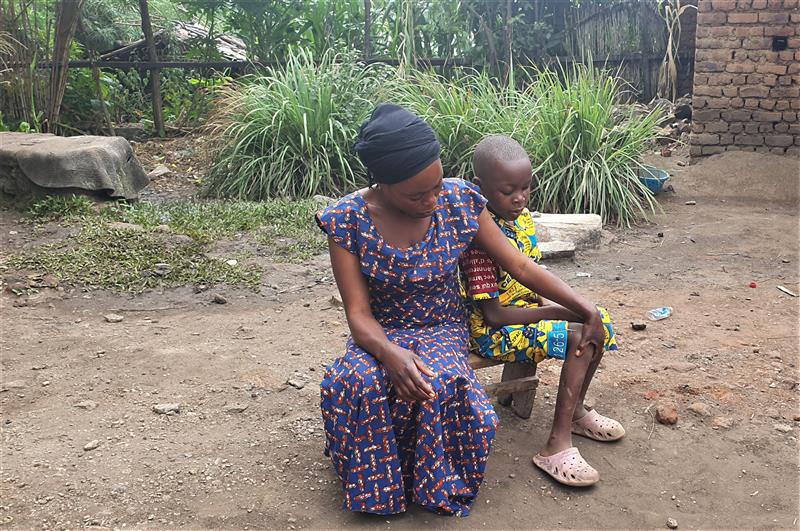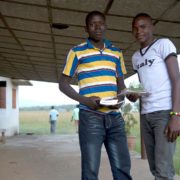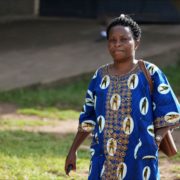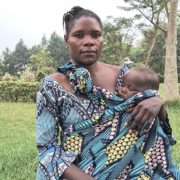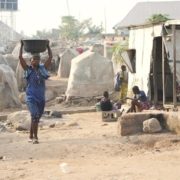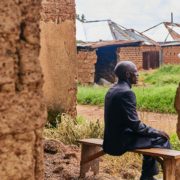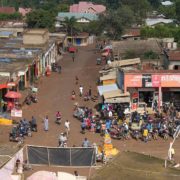“We can’t leave God’s word because of our wounds”, says bereaved DRC mother
On January 15, 2023, members of the Islamic militant Allied Democratic Forces (ADF) detonated a bomb in a church in the North Kivu province, eastern Democratic Republic of Congo (DRC). The explosion killed at least 17 people and seriously injured around 70 others. Neema*, a mother of two in her 30s, was also there that day. She survived the explosion, but her youngest son, David, 4, did not. Her 8-year-old son Danny was badly injured. Despite the pain, Neema testifies, “We can’t leave God’s word because of our wounds”.
Nearly 1,000 Christians gathered for worship that Sunday, following a weeklong evangelism campaign that culminated in the baptism of 62 new believers. At around 11 am, it began drizzling and Neema moved from where she sat under an overhang to sit with David under the tent near the main stage. The children, including her 8-year-old son, Danny, had just finished singing on stage.
“When Danny finished singing, he came to me. David, began dozing off. I held him to my chest. Then we heard a loud sound… We thought it was just the speaker that had fallen over.”
But it was not a speaker that had fallen over. “It was the bomb that had been placed to trap and kill people at the church,” says Neema.
The explosion killed 17 people. Unbeknown to her, David was among them.
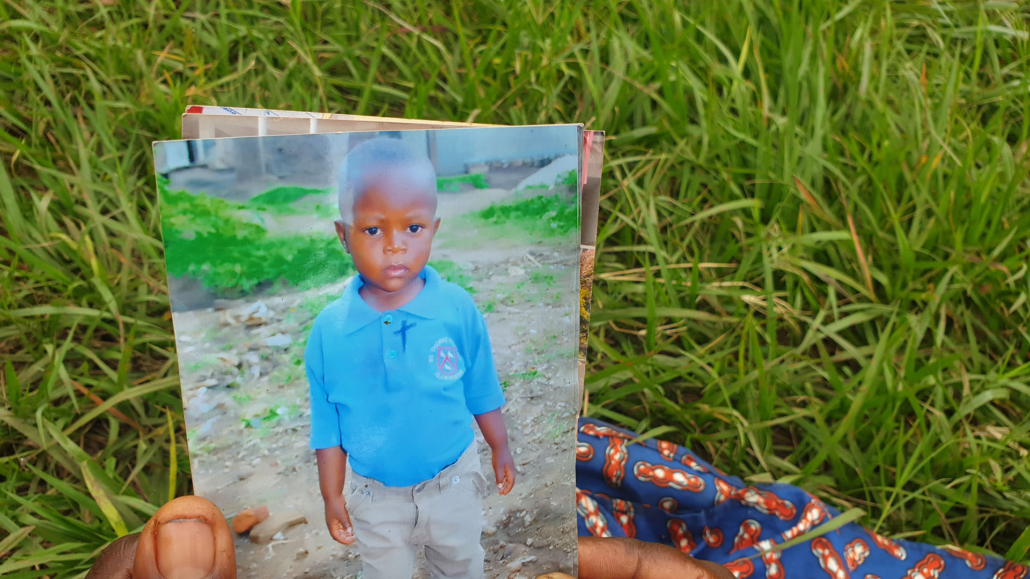
Valley of shadow of death
Neema’s first awareness was that the children were not with her anymore. “I don’t know when David had left my arm… or where he had gone. I didn’t know where Danny was either…”
Inside the compound it was utter chaos. Windows, furniture and equipment were in shards. But most broken, were God’s people.
In a daze Neema and many others were evacuated to hospitals in Beni, 75km away.
“There in Beni, I didn’t know that people were dead. I didn’t know my child had died, they didn’t tell us anything. When I called my husband (not a Christian) on the phone, he would tell me that David was already cured, but it was just to distract me,” Neema recalls.
Neema had wounds to her legs and bruises all over her body. Danny had lost an eye and had injuries to his legs so severe that he had to use crutches for two months.
Three weeks after the incident they were well enough to be discharged. But instead of it being a joyous occasion, the return home was only a darkening of the valley Neema was traversing.
The day that she returned home, was the day she learned that David had died. It was the first time her husband could muster the courage to tell her.
To make matters worse, her non-Christian in-laws blamed her for taking the children to church that day. But doing that, they said she was “throwing (David) away.” “They kept talking and talking and my mother-in-law said all of us should have died there directly… I cried and cried all day.” They put immense pressure on her husband to divorce her.
And so, one incomprehensible act of terror, kept delivering blow upon blow.
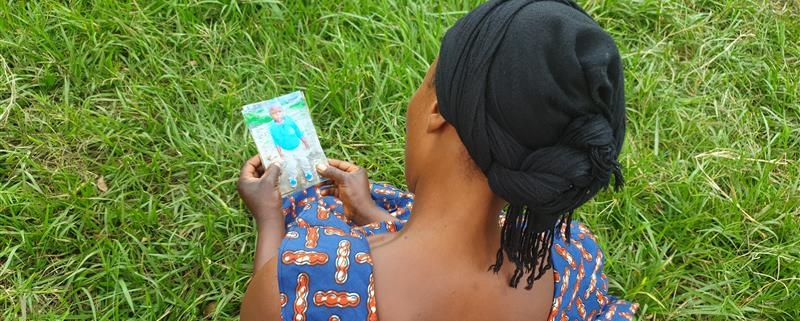
But faith!
And at times, alone with her thoughts and remembering a precious moment with her dear David, intensely missing him, she hears the accusatory voice whisper: “If only you had left him at home that day…”
“Then I remind myself again, that it was God’s will. I say, ‘God help me, and continue to comfort me’”.
And she knows that Danny needs her.
“Danny stopped eating because of thoughts of his brother… He would cry, asking for his brother.”
He often gets teased because he has only one eye.
After the attack, he feared going to church. “At one point, Danny started to say that he wasn’t going to go to church because bombs were being thrown around in our church. I told him that there were no bombs in the church, it wasn’t the church that had planted the bomb.”
With time and encouragement from their Christian family, Danny started going to church for rehearsals again. He also started eating again. For this small restoration, Neema is grateful to God.
When her heart threatens to break for her surviving child, all she can do, is cry out: “God help me, and console me.”
And she is immensely thankful for her spiritual family.
“I am comforted like this when I see the pastor and his wife coming to preach the Word of God to me. It comforts me.”
Singing hymns has also been a great source of comfort. “When I sing the song ‘The Saviour has taken me out of the forest,’ I feel relieved. I feel like someone who is in heaven. Another song that helps me is, ‘On the road to heaven’. It says that God sanctifies and purifies me so that I get to heaven being converted truly. Really, when I think of these hymns, I say ‘Lord, help me get to heaven, Lord, welcome my child, he died in the Church, let him get to heaven, help him a lot’. Then I feel very comforted.”
God fights for me
“I said thank you because God had saved us. We didn’t leave God. Of course, we were hurt, but we are moving on. Those who talk, let them talk. I want to move on. I can’t leave my God, and I can’t stop going to church, and I can’t leave the church because death is everywhere. Even if they’ll say I went to throw away the child.
“God sees everything we are carrying. He sees it in front of His cross.”
“My God is going to keep me, and I can’t leave my God! Until death, we are going to stay.”
Please Pray
Neema has the following prayer requests:
- “I ask brothers, and sisters, to continue praying for my Danny. May he follow God, may he always be in the things of God. I don’t know if he’ll be a pastor but let God’s will be done.”
- “Also pray that God will change my husband so that he will stop drinking. May God also change the hearts of his family so that they would recognise God and that He would show them the way to go to Him.”
- “Please pray that God would restore peace in my home… usually when my husband comes to the house, I don’t have peace.”
- “Pray for Danny to return to school and may God give him insight and make him succeed. May God also continue to help my daughter who studies.”
- “Please pray for our country that God continues to fight for us against these killings.”
5 things to know about the ADF
1. The group originated in DRC but has Ugandan roots
“The ADF formed in eastern DRC in 1995 through an agreement between portions of Uganda’s Tabliq Islamic sect and the National Army for the Liberation of Uganda (NALU) to fight the Ugandan government of President Yoweri Museveni. The ADF received early training and logistical support from the Sudanese government and translated these capabilities into violent attacks beginning in 1996,” explains Jared Thompson of the CSIS
2. Now mostly active in the North Kivu and Ituri provinces of the Democratic Republic the Congo (DRC).
Finding refuge in the Ruwenzori mountains of Democratic Republic of Congo, close to the Ugandan border since 1996, the government, with the help of a UN force have failed to secure the area. The size of the group ebbs and flows, and nobody seems to know exactly how many fighters they have. But despite the capture of their leader in April 2015, they continued to show surprising strength. “The ADF’s ability to merge with civilian communities allows them to lie low when necessary, and to re-emerge when conditions are more favourable,” said Michael Mutyaba, a Ugandan researcher and political analyst. “This explains why it’s proving resilient.”
3. The group’s leadership has an Islamic expansionist agenda
The ADF’s ideology has historically contained some Salafi-jihadist elements. And while the Islamic agenda has been debated by many, the group pledged allegiance to ISIL in 2019, and in 2021 the USA declared it an international terrorist organization.
4. The effects of their violence have been ferocious
In the 2023 Global Terrorism Report, DRC ranked 7th on the global list of hotspots for terrorism. According to a UN situation report published earlier in Jun, at least 2.3 million people have been displaced in North Kivu alone. Earlier this year, UNHCR spokesman Babar Baloch commented, “It seems that since the beginning of the year they have gone on a rampage in terms of raiding villages, killing civilians, kidnapping people, leaving people injured behind and the consequences are really, really clear on the desperate population who have to flee, in cases many times from each location to an-other.”
He said women and children constitute the majority of those fleeing their homes. The men, he said, stay behind to protect their property. Baloch notes displaced people are living in dire conditions without shelter, food, water or health care. “In the context of Ebola and the ongoing COVID-19 pandemic, the lack of access to toilets, clean water or soap and menstrual hygiene products is particularly of concern,” Baloch said. “In addition, families do not have enough essential items like blankets, sleeping mats or cooking materials.”
5. Christians count among the most severely affected
Our partners at Open Doors have placed DRC at #35 on the 2025WWL. DRC is home to an important Christian pocket in Africa, who has now been under attack for two and a half decades.

